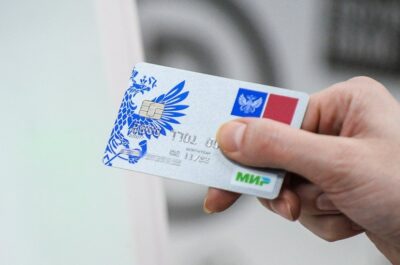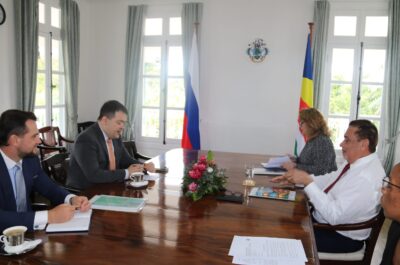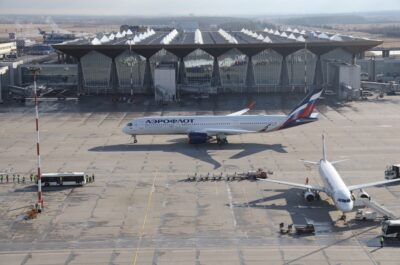Avoiding Russian airspace would probably be 25-50 percent more expensive than paying fees for transit, said Russian aviation consultant Boris Ryabok, estimating European airlines would lose around $100-200 million per year, less than the cost to Russia of the lost fees.
According to Reuters, Russian Prime Minister Dmitry Medvedev threatened on Tuesday to retaliate for the grounding of a subsidiary of national airline Aeroflot because of EU sanctions, with one newspaper reporting that European flights to Asia over Siberia could be banned.
Low-cost carrier Dobrolyot, operated by Aeroflot, suspended all flights last week after its airline leasing agreement was cancelled under European Union sanctions because it flies to Crimea, a region Russia annexed from Ukraine in March.
The business daily Vedomosti reported that Russia may restrict or ban European airlines from flying over Siberia on Asian routes, a move that would impose costs on European carriers by making flights take longer and require more fuel. Vedomosti quoted unnamed sources as saying the foreign and transport ministries were discussing the action, which would put European carriers at a disadvantage to Asian rivals but would also cost Russia money it collects in overflight fees.
Shares in Aeroflot – which according to Vedomosti gets around $300 million (177.82 million pounds) a year in fees paid by foreign airlines flying over Siberia – tumbled after the report, closing down 5.9 pct compared with a 1.4 percent drop on the broad index.
At the height of the Cold War, most Western airlines were barred from flying through Russian airspace to Asian cities, and instead had to operate via the Gulf or the U.S. airport of Anchorage, Alaska on the polar route. European carriers now fly over Siberia on their rapidly growing routes to countries such as China, Japan and South Korea, paying the fees which have been subject to a long dispute between Brussels and Moscow.
Vedomosti quoted one source as saying a ban could cost airlines like Lufthansa, British Airways and Air France 1 billion euros ($1.3 billion) over three months, but industry experts said that figure was probably too high.
Avoiding Russian airspace would probably be 25-50 percent more expensive than paying fees for transit, said Russian aviation consultant Boris Ryabok, estimating European airlines would lose around $100-200 million per year, less than the cost to Russia of the lost fees.
The EU has widened its sanctions after last month’s downing of a Malaysian airliner over territory in eastern Ukraine controlled by pro-Moscow rebels, with the loss of 298 lives.
The suspension of the airline flying to Crimea prevented Russians from taking cheap holidays on the Black Sea peninsula at resorts such as Yalta. This has added to a miserable summer during which a series of Russian travel companies have gone under as the economy flirts with recession and the rouble falls.
Itar-Tass reported on Tuesday that the IntAer travel operator had become the latest to fold, stranding about 500 holidaymakers abroad. The company blamed “a sharp fall in demand and purchasing power and the rise in the exchange rates of foreign currencies and the negative political situation”.
Russians have been increasingly taking holidays in countries such as Greece, Croatia, Bulgaria, Turkey and Egypt. However, the rouble has fallen 9 percent this year against the dollar due to the slowing economy and the effects of the crisis in relations with the West, forcing up the cost of foreign trips.
Around 15,000 tourists are stuck abroad following the collapse of the larger Labirint holiday firm, although industry officials have promised customers will be compensated from insurance policies which the companies had to take out.
A Greek tourism official said the country expected 1.1 million Russian tourists this year, down from 1.35 million in 2013. Arrivals from Ukraine, where government forces are battling the rebels in the east, are down 50 percent.
Andreas Andreadis, who heads the Association of Greek Tourism Enterprises, expected this would cost the country 300 million euros ($400 million). Greece still aimed to boost numbers of Russian visitors to 2.5 million a year by 2021, he said, but added “Things look like they will be getting worse before they get better.”
Tatiana is the news coordinator for TravelDailyNews Media Network (traveldailynews.gr, traveldailynews.com and traveldailynews.asia). Her role includes monitoring the hundreds of news sources of TravelDailyNews Media Network and skimming the most important according to our strategy.
She holds a Bachelor's degree in Communication & Mass Media from Panteion University of Political & Social Studies of Athens and she has been editor and editor-in-chief in various economic magazines and newspapers.











































































































































































































